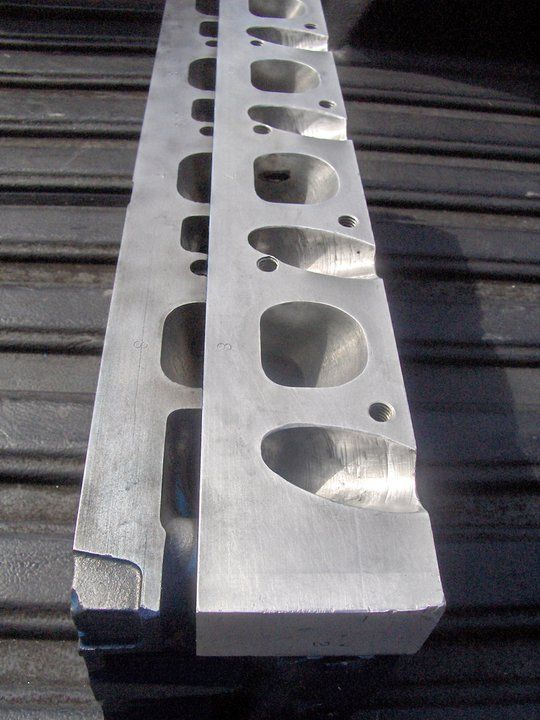Removing the thermactor boss did raise the high lift numbers about 1 2 cfm after porting but then leveling the lateral.
Raise the roofs of the intake and exhaust ports.
That s why some port the intake by removing material from the bottom of the skirt of the piston.
Nearly every single exhaust port today except for ford 302 5 0l and 351 heads are big enough.
You mention exhaust vents shouldn t exceed intake vents in the roof for proper circulation.
It enters via the intake port as the piston rises into the crankcase and then is transferred to the combustion area via the transfer ports as the piston descends and the piston top uncovers the port opening to the cylinder.
Intake timing is measured from the floor of the port.
Geometry setup the parametric intake port model was created in caeses and a set of seven parameters were selected for the optimization.
All we care about is velocity and pressure.
A competent port designer will raise the floor as shown in fig 10.
A knowledgeable head porter can clean up the bowls raise the roofs of the intake and exhaust ports and probably find you an extra 30 to 40 horsepower for minimal cost.
The roof raised in.
I have cut another exhaust port and still according to my flow tests i certainly cannot recommend raising the roof.
Again you don t need to do this on your first saw.
However with only two 1 ft x 2 ft gable roof vents i ll need an additional 7 sq ft of exhaust vents.
Be it the intake or exhaust the worst part of the port for air to negotiate is the short side turn.
I need additional exhaust ventilation in my roof with the planned installation of a whole house fan in the attic of my home located in sf bay area.
It s best to lower the port when needed.
The only thing we do to enhance air flow is raise the roof of the port about 0 100 depending on the headers used.
The port was a typical geometry for an si engine combined with a pent roof combustion chamber and four valves per cylinder.
Developing a port profile before flow benches the only way a head porter could tell if his work improved airflow was if the car ran faster on the track or the engine made more.
After it is burned the exhaust gas exits via the exhaust port.
It enters via the intake port as the piston rises into the crankcase and then is transferred to the combustion area via the transfer ports as the piston descends and the piston top uncovers the port opening to the cylinder.
With the way i ported this last exhaust port i lost 4 5 cfm when i tried raising the roof about 050.










